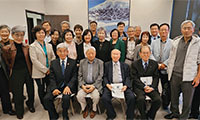A Celebration: 4th of July, Independence Day
▶ Los Angeles Survival (33)
It was not until I was in the County Children’s Home that I heard the first firecracker explode. The bigger boys spent Saturday morning picking strawberries and were paid the huge sum of 25 cents each, and told they could spend the money as they wished. They bought Fourth of July fireworks and sneaked them into the yard. The head matron and her staff were in Riverside shopping and only Mrs. Snyder, the girls’ matron, was left to supervise. After lunch she went to her room to rest and the girls were finishing up in the kitchen. The boys came in and said to come and watch and bring some matches, and held up a bag. The show started with the first bang, a firecracker going off. Followed sparklers that sputtered but were dimmed by the bright sunshine. Then a small torpedo-shape object was readied for smashing against the cement walk where it would explode and deafen, the boys warned, and covered their ears. For a few seconds it hissed and died out. The fellows glossed over the failure, saying Roman candles were the best, shooting off into space like flashing comets and always worked but cost money. Which I awaited several years before one crossed the horizon. The celebration was over and it was a Fourth I would not forget. Today I read the Declaration of Independence of July 4, 1776, and took heart. Its word spoke: "Hang in there!" for Korean reunification. The country will unite. "Where there is a will, there is a way." (This last is an adage the girls matron repeated often at the Children’s Home, to discouraged hearts.) So read these few sentences from the Declaration of Independence which I have just done:
"When in the course of human events, it becomes necessary for one people to dissolve the bands which have connected them E", going on to the second paragraph that declares: "We hold these truths to be self-evident, that all men are created equal, that they are endowed by their Creator with certain unalienable rights, that among these are life, liberty and the pursuit of happiness. That to secure these rights, governments are instituted among men, deriving their just powers from the consent of the governed, that whenever any form of government becomes destructive of these ends, it is the right of the people to alter or to abolish it, and to institute new government, laying its foundation on such principles and organizing its power in such form, as to them shall seem most likely to effect their safety and happiness."
The signers from the 13 colonies witnessed the document and lived to see the establishment of the United States of America. Their belief in the God-given unalienable rights brought forth a new nation! And...Koreans another century away may not have encouraged their youngsters about the Fourth of July in the early days of Riverside but they were surely supporting independence for Korea, the country they immigrated from. That, the importance of their struggle was their mainstay and was served with every meal, at every meeting including church services, by prayer and money. It was unbelievable, their devotion. Korea came before their children! Or so it seemed to our selfish little hearts. Then I was whisked into the Children’s Home, the upkeep paid by County taxpayers. I entered another country. Everyone was Paekin - the matrons, the other children too. And it was the girls matron who was Paekin that made me welcome, made me feel I was one of them: American.
It was a summer’s evening when it was too warm to go to bed with temperatures in the 80s, she told us a story about herself. We sat on the doorstoop where we had a wonderful view of the night sky, and every so often a comet flew across. The outdoors was the right place to hear an adventure story. The storytelling went on for the rest of the week. When she finished, she did not talk about her life again. But that first summer after I came was like a prologue to an opening act. (At the time I never knew about plays or storytelling or the reason she was telling her story. Only it was good not to go to bed in the hot dormitory!)
She told her parents were from Alsace-Lorraine. The country was taken by the Germans in the Franco-Prussian War, 1870-1871, and were detested by Alsatians. Her parents immigrated to the United States and settled in Indiana, a border state during the war with the Confederate States. They sympathized with the Southern people and Mrs. Snyder grew up feeling like her parents. Her parents’ name was Boyer and when she was born she was named Jessie May Boyer. She became Mrs. Snyder when she married and she said, "It is spelled Snyder, not Schneider which is German." (We were alike, I decided, we disdained the enemy!) Mrs. Snyder also disliked President Lincoln, he was not her favorite President. Our first grade teacher was from Arkansas, a border state, who voted Democratic and didn’t believe in the Confederate cause, slavery. They were both my mentors and I liked them equally.
There were four children born of the immigrants. Three girls and a boy whose name was Charles. Charles left to seek his fortune in the Alaskan gold rush. When he reached San Francisco he wrote them he was safe and ready to embark to Alaska, where he would write again. They received another letter and there were no more. Mrs. Snyder said they assumed he died that first terrible winter on their way to the Klondike gold fields. News reports told of the hardships the men underwent, without proper equipment, food, or shelter. This story was history and Mrs. Snyder’s brother had a share in it.
The states she spoke about in their migration westward after Indiana were Illinois, Missouri, Kansas. Along the way she saw Indians, sometimes close-up, sometimes as bands of tribes moving on. They did not menace the settlers. In one state the Boyers lived in a sod hut, housing that was dug in the ground like a cellar and roofed over with plank and more sod. She said it kept them warm in winter and cool in summer, and also kept their homestead from sighting by the Indians who were vandalizing the settlers. In Kansas she recalled they lived in a wooden structure, with a storm shelter in the basement which was for use in tornado weather. Also, it was in Kansas when they were homesteading with wheat, a horde of grasshoppers flew in and within a few hours chewed their way through the fields, flying off when the last blade was chewed. The sky turned dark as night and when the insects were gone, it was a bright sunny sky overhead.
She and her sisters attended school irregularly during that trek westward, but Mrs. Snyder managed to finish the eighth grade, which was an achievement. Reading was her first love, she never stopped reading; and she would get books from the public library, read them, and often retell a short version. When they were in school, it meant she and her sisters were living in a town or village. Here they heard the news around the region. Some were violent. There were raids from brigands or bands of outlaws. She said these events did not happen where they were living. Then when they were still in Kansas, the government opened up Indian land to American homesteaders in Oklahoma. The land was obtained legally with Indian agreement. She lived close to the border and watched the army of farmers in overloaded wagons, on horseback, and their families waiting for the signal to enter Oklahoma Territory. The crowd was great and there was no holding them back, and before the gunfire went off, these land-hungry seekers started pell-mell across the line, pushing aside soldiers and government officials. Rushing to their chosen site. History called them "the Sooners". Today Oklahomans are proud of these eager and overzealous pioneers. Lo the poor Indians! They had yet to learn about the Declaration of Independence of July 4, 1776.
She did not dwell upon her marriage. She had a son and daughter, Lowell and Cecil. What reference she made about her marriage hinted that Mr. Snyder was a railroad man. When he died, she and the children took the train to California, which was advertising for newcomers. She came to Riverside and had to make a living. She had taken care of people from childhood on, beginning with the Boyer family members. Taking care of others was the one practical skill she claimed. With this for reference she became a "practical nurse". California may have had a license for untrained nurses, much like LVN (licensed vocational nurses) today. She was at the Children’s Home and she wore the nurse’s white starched cap and nurse’s uniform. One day I practiced my own skill (ironing) on her cap, which was with clothes to be ironed. I scorched the inside of the cap, and it did not show through. But when she inspected my art, she saw the scorch and with set teeth remarked, "Oh, ye little divil!" and that stopped my ironing career.
She also told a story about her daughter. (The daughter had come to see her mother when the story was related, and was married with two children.) As a nurse Mrs. Snyder often remained with her patients in their homes. Then Cecil, of high school age, was responsible for herself and the house. They lived in a tiny house, the type called "salt box" and found throughout the Arlington-Riverside area, the rent being very nominal. One time Cecil came to her mother at the patient’s home and said dejectedly, "The house burned down this morning. I saved the toilet paper," handing over the object of her dejection. Mrs. Snyder had a sense of humor. She said, "I am so happy you saved yourself! What would I do with only the toilet paper!"
These are a few anecdotes I recall of the woman who was prejudiced about many things, like the Southerners and slavery, President Lincoln, and those she called "white trash". Yet in the kindness of her heart, when five Korean children came to an all-white refuge, she took them into her "bosom" and most certainly "mothered" me. I felt she instantly recognized Koreans had a like experience, with enemy the invading conquerors - Germans and Japanese. While California long derided Oriental people - and I am sure Mrs. Snyder had her earful about "them" - when a few showed up on the Home doorstep she was able to see the little children and "suffer the little children to come unto me" verse Jesus spoke long years ago.
Five years later...when I left the shelter of the Children’s Home, I could see she saw me as a tough little American who would do OK out in the white world. I left and did not see her again for about four years and that was in Los Angeles. We were both strangers then. God bless Mrs. Snyder, she was the ace slipped in my sleeve and somehow I got through the game sometimes called life.
스마터리빙
more [ 건강]
[ 건강]이제 혈관 건강도 챙기자!
[현대해운]우리 눈에 보이지 않기 때문에 혈관 건강을 챙기는 것은 결코 쉽지 않은데요. 여러분은 혈관 건강을 유지하기 위해 어떤 노력을 하시나요?
 [ 건강]
[ 건강]내 몸이 건강해지는 과일궁합
 [ 라이프]
[ 라이프]벌레야 물럿거라! 천연 해충제 만들기
 [ 건강]
[ 건강]혈압 낮추는데 좋은 식품
[현대해운]혈관 건강은 주로 노화가 진행되면서 지켜야 할 문제라고 인식되어 왔습니다. 최근 생활 패턴과 식생활의 변화로 혈관의 노화 진행이 빨라지고
사람·사람들
more많이 본 기사
- 그린란드 들쑤셔놓고…트럼프, 가족과 대학미식축구 관람
- “페널티 없이 401(k)로 주택 다운페이”
- ‘값비싼 이혼’ 위협하는 트럼프에…프·독은 강경·영국은 신중
- 트럼프 위협에 10조달러 미국 자산 무기화?…유럽의 딜레마
- 시위대, 이민단속 앞장선 목사에 항의… 1
- 아프리카 무관세 美수출길 다시 열리나…하원 연장안 가결
- 이혜훈 청문회 ‘일단’ 불발할 듯…靑 재송부 요청 여부 주목
- 차 고장나 하루더 묵었다가…美관광객 3명 ‘묻지마’ 총격에 사망
- 올해 연방 학자금 대출 전면 개편… 한도 큰 폭 축소
- 텍사스 ICE 이민자 구금시설서 세번째 사망자 발생
- 종합특검법 국무회의 통과…최대 251명 투입해 최장 170일 수사
- 뉴욕증권거래소, 토큰증권 거래 플랫폼 추진…24시간 주식거래
- 장동혁 ‘쌍특검 단식’ 엿새째… “민… 2
- “숨 막혀서 도저히 못 타겠다”… ‘닭장 좌석 논란’ 항공사, 승객 비난에 결국
- ‘엔비디아, 연말 시총 7조달러 돌파’
- “혼자가 얼마나 좋은데 연애를 왜 해요?”…큰소리친 사람들 나이 들더니
- 마이크론, 대만 반도체공장 18억달러에 인수나서…”메모리 수요 대응”
- 또 ICE 이민 급습 단속… 자바시장 ‘공포 분위기’
- 우드랜드 동물원 사자 쌍둥이 태어나...남아공 사자 2014년 이후 10여년만에 첫 출산 ‘기쁨’
- ‘영화 속 미래가 현실로’… CES 2026 주목할 신제품
- 시혹스, LA램스와 사실상 슈퍼볼...25일 오후 3시30분 시애틀 루멘필드서 NFC챔피언 결정전
- “내 계좌로 받으라 했다”..박나래·전 매니저, 이번엔 횡령 의혹 ‘진흙탕 공방’
- 류시원, ‘19살 연하’ 강사 ♥아내 공개 “예쁜데 공부까지 잘해”
- 박나래 매니저, 행사비 횡령 의혹..3000만원 행방은?
- 워싱턴주, 비지니스 시작하기에 ‘전국 하위권’...미 50개주 중 38위로 안좋아… 결국 “비즈니스에 불리한 주”
- 롱뷰한인장로교회 담임에 윤응렬 목사...오리건주 포틀랜드 소망한인장로교회 담임 역임
- 페더럴웨이한인회, 17년 만에 한식구됐다...서북미연합회 임시총회서 만장일치로 회원 가입 의결
- 무언의 시위?…퇴출압박 연준의장, ‘동병상련’ 연준이사 재판 참석
- 머스크, 또 선거 ‘큰손’ 역할…공화 경선후보에 150억원 기부
- 스페인 열차참사 사망자 40명…사고원인 조사 착수
- LA 집값 ‘기본이 100만불’… 밸리·토랜스 등 15곳 늘어
- 기독실업인협회 시애틀지회장에 최명희씨...CBMC 서북부연합회 신년 모임서 최 지회장 취임식 가져
- 트럼프, 맘다니 뉴욕시장에 “텍사스 증권거래소로 큰 시험대”
- 반복되는 일가족 살해 ‘비극’… 3명 사망
- 가족이민 전부문 3개월째 제자리
- 신차 구매자 월 할부금 1천달러 훌쩍… 구입 시 고려할 점
- Another ICE Immigration Raid Hits LA Fashion District... ‘Atmosphere of Fear’ Grips Jabba Market
- 거의 비슷해진 한미 시장금리…그래도 오르는 환율, 왜?
- 12월 전국 고용 5만명 증가에 그쳐 부진
- 시애틀 주택시장, 구입자엔 ‘최고 좋은 시기’...매물은 늘고 거래는 둔화…조건 맞으면 수년 만의 매수 기회
- 트럼프 “노벨상 나한테 안줘서…그린란드 통제할 것”
- 임성근, ‘음주운전 3번’ 고백 직격타..구독자 3만명 줄줄이 이탈
- ‘1억 공천헌금’ 강선우 경찰 출석…”원칙 지키는 삶 살아와”
- 트럼프, ‘그린란드 관세’ “100% 실행”…무력옵션은 “노코멘트”
- 서울대 남가주 총동창회 이사회
- 무역대표, ‘상호관세’ 대법 패소시 대체관세 도입 “즉시 착수”
- 지정학적 일대 재난사태로…
- “살아있는 권력 근처로 가자”
- 이민성호, U-23 아시안컵 4강 ‘한일전’ 성사
- [메건 매카들 칼럼] 보고 싶은 것만 보기
1/5지식톡

-
 한국 안경을 무료 배송으로 받아보실…
0
한국 안경을 무료 배송으로 받아보실…
0안녕하세요. 서울 안암동에 위치한 ‘보고싶다 안경원’입니다.저희는 다년간 한국 고객분들께 착용감 좋은 안경테와 한국안경브랜드,고압축 도수 렌즈를 합리적인 가격에 제공해온 안경 전문점입니다.이번에 해외 배송이 가능해…
-
 미 육군 사관학교 West Poin…
0
미 육군 사관학교 West Poin…
0https://youtu.be/SxD8cEhNV6Q연락처:wpkapca@gmail.comJohn Choi: 714-716-6414West Point 합격증을 받으셨나요?미 육군사관학교 West Point 학부모 모…
-
 ☝️해외에서도 가능한 한국어 선생님…
0
☝️해외에서도 가능한 한국어 선생님…
0이 영상 하나면 충분합니다!♥️상담신청문의♥️☝️ 문의 폭주로 '선착순 상담'만 진행합니다.☎️ : 02-6213-9094✨카카오톡ID : @GOODEDU77 (@골뱅이 꼭 붙여주셔야합니다…
-
 테슬라 자동차 시트커버 장착
0
테슬라 자동차 시트커버 장착
0테슬라 시트커버, 사놓고 아직 못 씌우셨죠?장착이 생각보다 쉽지 않습니다.20년 경력 전문가에게 맡기세요 — 깔끔하고 딱 맞게 장착해드립니다!장착비용:앞좌석: $40뒷좌석: $60앞·뒷좌석 …
-
 식당용 부탄가스
0
식당용 부탄가스
0식당용 부탄가스 홀세일 합니다 로스앤젤레스 다운타운 픽업 가능 안녕 하세요?강아지 & 고양이 모든 애완동물 / 반려동물 식품 & 모든 애완동물/반려동물 관련 제품들 전문적으로 홀세일/취급하는 회사 입니다 100% …
케이타운 1번가
오피니언
 옥세철 논설위원
옥세철 논설위원지정학적 일대 재난사태로…
 메건 매카들 워싱턴포스트 칼럼니스트
메건 매카들 워싱턴포스트 칼럼니스트 [메건 매카들 칼럼] 보고 싶은 것만 보기
 박소정 더 트리니티 대표 한국공공외교학회 문화외교 이사
박소정 더 트리니티 대표 한국공공외교학회 문화외교 이사 [박소정의 아트 비즈니스] AI와 예술
 조형숙 시인·수필가 미주문협 총무이사
조형숙 시인·수필가 미주문협 총무이사 잃어버린 것의 자리에서
 민병권 / 서울경제 논설위원
민병권 / 서울경제 논설위원[만화경] 안동 사과와 한일 정상회담

한인 2세들 ‘족쇄’ 국적법 신속 개정해야

노동법 준수로 공정의 새해 열자
 조지 F·윌 워싱턴포스트 칼럼니스트
조지 F·윌 워싱턴포스트 칼럼니스트 [조지 F. 윌 칼럼] 올 중간선거를 덜 불쾌하게 만드는 길
 최규성 삼성서울병원 이식외과 교수
최규성 삼성서울병원 이식외과 교수 [로터리] ‘토의 간’
1/3지사별 뉴스

뉴욕한인회‘제123주년 미주한인의 날’ 기념식 성황
뉴욕한인회(회장 이명석)가 13일 맨하탄 뉴욕한인회관에서 개최한‘제123주년 미주한인의 날’ 기념 행사가 각계에서 활동 중인 1.5세 및 2세…
국적이탈 수속에 2년이나 걸리다니⋯

“살아있는 권력 근처로 가자”
도널드 트럼프 대통령이 집권한 이후 전세계 억만장자들이 잇달아 워싱턴 지역으로 몰리고 있는 것으로 알려졌다.언론매체인 파이낸셜 타임즈는 최근 …
“실질적 삶의 문제에 최우선”

미네소타 또 긴장 고조…육군 투입 대기에 주방위군 동원령
이민세관단속국(ICE) 요원의 총격 사건을 계기로 격렬한 시위가 계속되는 미네소타주에서 긴장이 더 고조되고 있다.국방부가 알래스카에 주둔 중인…
재미한국학교협의회

오늘 하루 이 창 열지 않음 닫기 



















































.png)


댓글 안에 당신의 성숙함도 담아 주세요.
'오늘의 한마디'는 기사에 대하여 자신의 생각을 말하고 남의 생각을 들으며 서로 다양한 의견을 나누는 공간입니다. 그러나 간혹 불건전한 내용을 올리시는 분들이 계셔서 건전한 인터넷문화 정착을 위해 아래와 같은 운영원칙을 적용합니다.
자체 모니터링을 통해 아래에 해당하는 내용이 포함된 댓글이 발견되면 예고없이 삭제 조치를 하겠습니다.
불건전한 댓글을 올리거나, 이름에 비속어 및 상대방의 불쾌감을 주는 단어를 사용, 유명인 또는 특정 일반인을 사칭하는 경우 이용에 대한 차단 제재를 받을 수 있습니다. 차단될 경우, 일주일간 댓글을 달수 없게 됩니다.
명예훼손, 개인정보 유출, 욕설 등 법률에 위반되는 댓글은 관계 법령에 의거 민형사상 처벌을 받을 수 있으니 이용에 주의를 부탁드립니다.
Close
x